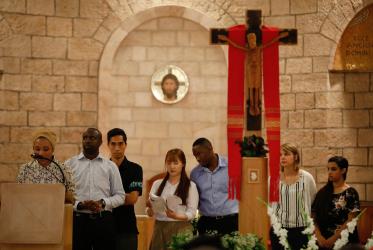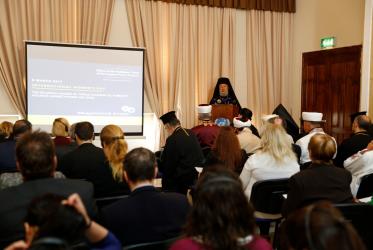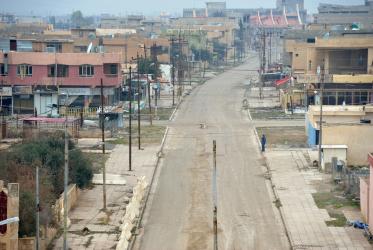Displaying 121 - 140 of 199
05 July 2017
Women in development create space for hope in Egypt
15 June 2017
In Lebanon, refugees face hardship - but find hope
16 March 2017
WCC gravely concerned over Israel’s travel ban
09 March 2017
‘No Christmas bells in Mosul’ for a third year, says Assyrian priest
14 December 2016
Plans for 2017 decided by WCC Executive Committee
01 December 2016
Grand Imam calls for collaboration against violence and poverty
06 October 2016










